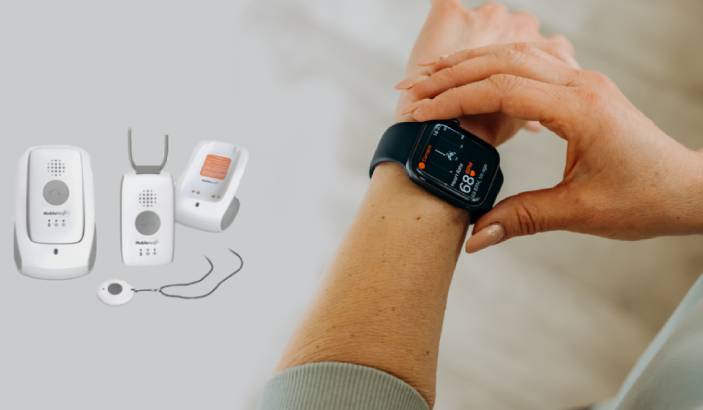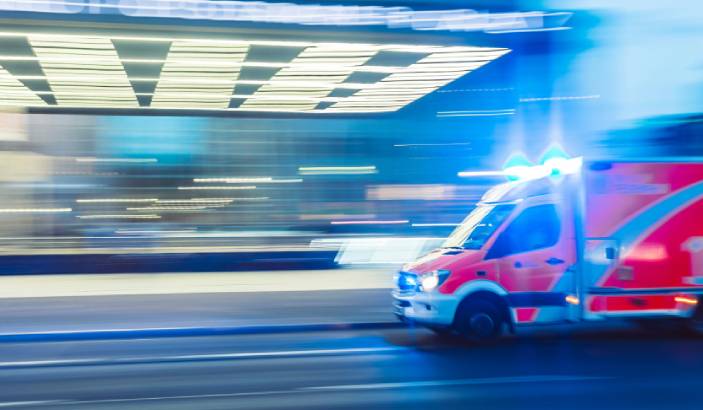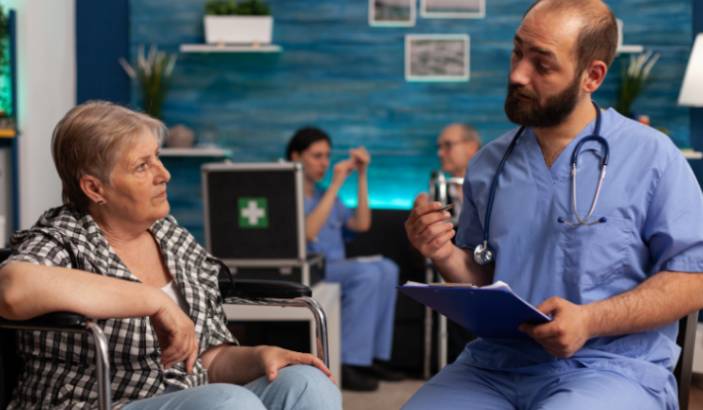While retirement is often relaxing for the majority, many seniors suffer from medical issues in the later stages of their life. They require special attention and care 24/7. While you can’t be present with them continuously, at the same time as a child, it is our responsibility to ensure their safety and well-being.
Nowadays, you can use a medical alert system to monitor the elderly activities and ensure their well-being. A medical alert system connects you with your loved one and alerts you when they need immediate assistance. It provides you peace of mind as you know that your parents can reach you whenever they need your help.
While there are a variety of alert systems present in the market, it’s hard to determine which one fits the bill for you.
In this article, we will discuss medical alert systems, how they work, and how they can help you to provide effortless security to your loved ones. And lastly, features you should look for in an ideal solution.
What Is A Medical Alert Device?
A medical alert device is a system that alerts emergency services and close ones of the wearer if the person is in any health hazard or if there has been a disturbance in their vitals. They’re also available as in-house or mobile devices with the choice of 24/7 monitoring.
Nowadays, these devices have become more inconspicuous than their predecessors, so the user feels less self-conscious while wearing the alert device. You can buy medical alert devices, like bracelets or pendants, and connect them to a smartphone app.
What Makes Up A Medical Alert Device?
These devices include medical alert equipment and a monitoring system that alerts emergency services and other loved ones.
Medical Alert Equipment
The medical alert equipment differs in in-house and mobile alert devices. An in-home alert device often has a base unit connected to home wearables or sensors. These systems also carry accessories like a wearable help button, carrying case, etc.
You can choose from various add-ons with any in-home medical alert device. A few devices come with 24/7 precise location tracking and reminders for medicine, water, etc. Several companies offer mobile alert devices that do not require a base unit and work off a rechargeable battery and charger.
While mobile alert devices are easier to work with, you will get comprehensive guidance throughout the setup. This medical alert equipment has an alarm system that contacts Emergency Medical Services as soon as any irregularity is detected.
24/7 Monitoring Alarm
The second part of a medical alert device consists of a monitoring alarm that contacts a trained professional from the service who can connect you with nearby emergency services.
In fall alert systems, the monitoring alarm automatically detects if you fell and sends an alert to the service personnel. You can also opt for constant location tracking so the emergency services will get the exact location of the signal and respond as quickly as possible.
How Do These Alert Devices Work?
The medical alert system consists of three steps that help it alert the concerned authorities as quickly as possible. These steps are:
Occurrence Of Emergency
The wearer presses the emergency button, or the device automatically detects some emergency. The monitoring team receives the signal that the wearer needs immediate assistance.
Some devices even have fall detection features that immediately notify the monitoring team and emergency contact list when the elderly fall.
Identification Of The Problem
After the monitoring center receives the emergency, they connect with the wearer and identify the trouble. In cases where the wearer cannot talk, like a heart attack, the wearable alert system automatically detects such an issue with its sensors and alerts the appropriate authorities.
Assistance
After the emergency services are alerted, help gets sent to the wearer in no time. With medical alert systems, you can contact EMTs, police, and even firefighters sent to the emergency along with your close ones about the situation.
What Are Unmonitored Medical Alert Systems?
With an unmonitored medical alert system, your emergency alert gets sent directly to emergency services or your emergency contacts without being verified by a monitoring center. Unmonitored medical alert systems are a good choice if you’re looking to avoid paying a monthly fee for emergency alerts.
Unmonitored alert devices are also great for those people who like to contact their loved ones or neighbors in an emergency rather than a professional sitting in a monitoring center.
Unmonitored alert devices are cheaper, but they come with fewer features and are less reliable than monitored alert devices in case of false alarms or emergencies. We recommend using monitored alert devices as they have better features and will be more effective in emergencies.
Why Do You Need A Medical Alert System?
Medical alert systems are one of the best ways to provide effortless security to the elderly. But if you are still confused you should invest in the medical alert system or not, here are some sounds reasons to do so:
- Do your parents love to enjoy their retirement age by doing different adventurous activities? Many elderly like to go hiking or camping in their older age. They have been busy throughout their life, and now that they have the time, they want to enjoy their free time and live life as best. You should not restrict them even if you are worried about their safety. All you have to do is buy a portable medical alert system and let your elderly do whatever they want while you are satisfied with their safety.
- Even if your parents or loved one loves to stay at home, enjoying gardening or reading books by the fireplace, you need an in-house medical alert system. There are many dangers for the elderly at home. They can fall from the stairs or in the bathroom and need immediate health assistance. Or in case of burglary or other health issues, they might need your help. With the medical alert system, they can always notify you, or even when they are unable, the device will automatically detect and send you an alert. Some devices also share your loved one’s location with the first-hand responders or call 911.
- If your parents have dementia, then you need a medical alert system. Wandering is one of the most common problems of patients suffering from memory loss. You can stay connected with them with the help of the medical alert system and track their location to bring them back home if they wander off.
Medical Alert Devices Buying Guide
Medical alert devices are of two types, and we’re mentioning the features you should look out for before buying either of them.
Features To Consider For Medical Alert Device
Type Of Connectivity
You can choose either landline or cellular connectivity for the alert device. Landline is a better choice for areas where cellular networks are poor.
Signal Range
Many alert devices come with wearable help buttons which have a signal range. If you live in a large home, buying an alert device with a broad signal range is recommended
Fall Detection
With senior citizens, falling on the ground can be fatal; thus, these systems will instantly alert the respective authorities for further assistance to prevent any long-term issues. Fall Alert Devices work with accelerometers that detect motion and alert the monitoring center if the wearer falls. Many medical alert devices have fall detection as an add-on for some additional monthly fee.
You can also get fall detection with ambient sensors placed in high-risk fall zones like stairs or bathrooms. These sensors send alerts to the monitoring center, which contacts you and try to find out more about the crisis.
If they cannot reach the wearer, emergency services are immediately alerted, and your loved ones are notified about the fall. Fall alert systems have become an essential component in healthcare for senior citizens.
Although there are many cases of false fall detection, recent technology advancements in sensors and software try to minimize such events. Monitoring centers verify the alert before sending any assistance so you won’t get into trouble for false fall detection.
Battery Life
If you want a portable alert system, you should look for a device with good battery life.
Battery life is a significant aspect of your mobile alert devices, as long battery life will come in handy if the wearer has forgotten to charge their device or wandered far from home.
Standalone Device
You can get mobile alert systems that have an in-built microphone and speaker. Many mobile alert systems have communication options through smartphone apps, but in medical alert devices for seniors, less complexity leads to more efficiency.
Location Tracking
You should ensure that mobile alert systems constantly track the wearer in real time. It will help the emergency services reach them quickly and not waste time trying to find their location.
Add-Ons
You can also get a lot of accessories with medical alert systems and some add-ons to enhance your experience. Some add-ons include voice activation, immediate assistance, etc.
Our Say
Medical alert devices are critical for ensuring the safety of senior citizens and other people with health conditions. They have become an integral part of personal healthcare and assisted emergency services in helping more and more people in need every year. Look for a device that offers most of these features while being available at affordable rates.








